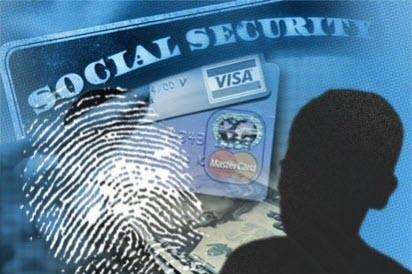While frequent data breaches may have desensitized some consumers to identity theft, it’s still important to pay attention to early warning signs your info is being used illegally, no matter how creative, silly or transparent a scam may seem.
“For the most part, identity thieves are sophisticated, dogged and damn smart. They take advantage of distraction and trust and look for the slightest crack or crevice to crawl into our lives,” says Adam Levin, chairman and founder of Identity Theft 911, an identity theft services company. ” If something doesn’t feel right, don’t do it. The potential imaginary opportunity you miss could end up saving you time, stress and money.”
“[Some signs] can be sort of amusing, but they’re all terrifying,” says Marian Merritt, Internet safety advocate for anti-virus software company Norton, since compromised personal information can lead to big financial woes. Norton estimates in 2010 more than 74 million people in the U.S. were victims of some form of cybercrime, leading to $32 billion in direct financial losses.
To help you avoid adding to these losses, here are some early signs your identity has been compromised.
Your credit card gets declined for an unknown reason.
An expected decline can be one of the first signs an account has been hacked into, says Stu Sjouwerman, CEO of network security firm KnowBe4. This is why you shouldn’t be blasé if a retailer says their system isn’t taking your plastic.
Should a card get denied, go home and check your account immediately. If your funds are intact, you may want to call your issuer to see if they can help you get to the bottom of what may have caused the transaction to fail.
Mystery charges start appearing on your credit or debit card statements.
Strange charges on your credit or debit card account usually mean someone out there is up to no good, but you shouldn’t only be on the lookout for big charges. Crooks who have purchased the number via illegal carder forums will often “test numbers with small purchases,” Merritt says.
This is why you should call your issuer, no matter how big or how small the suspicious charge is. They can help you determine if the purchase is being made illegally or was simply a mistake. For instance, a clerk may have keyed in the wrong account numbers when processing a transaction over the phone or another shopper may have reversed some numbers on the card while shopping online. If the charges are tied to a bigger issue, your credit card company can also help you ensure the fraud remains an isolated incident.
“They’ll walk you through the next steps,” Sjouwerman says.
Merchandise you didn’t order shows up at your house.
It’s also a bad sign if merchandise you don’t recognize gets delivered to your doorstep, since its sudden appearance could mean someone has gotten access to one of your online shopping accounts. While using the credit card on file, they may have forgotten to change its default shipping address, Merritt says, leading to the unexpected gifts.
If this does happen, call the retailer to arrange to have the merchandise returned. You should also change the password associated with the compromised account and call your credit card issuer to have the card replaced or flagged for future fraudulent activity.
A debt collector calls you for a debt you’ve never heard of.
If a debt collector starts calling to a collect on a debt you’ve never heard of, someone else may be putting your identity to use, Sjouwerman says. This is why, as tempting as it may be, you can’t ignore the calls after initial contact. Instead, find out as much as you can about the purported debt in question so you can determine if it is, in fact, being attributed to you, then take these steps to have it eradicated.
Your monthly billing statements stop showing up.
Sudden and strange activity involving your financial accounts is definitely a red flag, but sudden inactivity can be just as worrisome. For instance, if your monthly billing statements are a miss, it could mean “someone has changed the billing address [on the account] so you don’t find out it’s been compromised,” Sjouwerman says.
To make sure this sign doesn’t go unnoticed, Merritt suggests writing out a schedule of when your major bills are set to arrive. If one doesn’t make it to your mailbox or your email account, it may be a good idea to touch base with your bank, issuer or service provider.
Your friends receive emails from your address that you never sent.
Consumers shouldn’t only be on alert for unusual activity in their financial accounts. Similarly suspicious activities within email or social media accounts are another early sign that a thief has gotten their hands on your personal information, Merritt says. For instance, one way fraudsters try to capitalize off of stolen digital identities is to send out phony emails asking friends and families to send money to an international address under the guise that the actual owner is stranded in a foreign country. Similar scams have been utilized via Facebook or Twitter.
If someone is sending out spam for one of your accounts, make sure to immediately change the password associated with all of your other ones. If you’ve been locked out of the account that was compromised, call your service provider to have that particular account discontinued.
Your credit score takes an unexpected dive.
You should also be concerned if you’ve checked all of your credit scores prior to applying for a loan only to have a lender come back and say it’s not as high as you had believed it was, Sjouwerman says. For instance, if you were told your score was a 720 and a lender comes back and says it’s actually a 580, an investigation is in order.
Consumers who encounter this problem should request another copy of the report in question and scan for any activity they are unfamiliar with. As previously reported, the inquiry section can be particularly telling since you may stumble across loan or credit card applications you never filled out. If you do discover fraudulent line items, call the credit bureau to dispute the info. You can also ask them to add a fraud alert to your report so you are notified when other information is added to your account.
The personal information appearing on your credit report is inaccurate.
It’s also a bad sign if the personal information appearing on a credit report doesn’t match up with your records. For instance, Sjouwerman says, be wary if an address you’ve never lived it is listed as your current or former residency. Similarly, check to make sure your correct Social Security Number is listed. If it’s not, don’t panic. Inaccuracies on a credit report are fairly common and aren’t always related to identity theft. Contact the credit bureau that is listing the inaccurate information so they can investigate
how it got there. If you do ultimately discover the issue runs deep, you may want to take a trip to your local police station.
“Many people don’t realize, but it can be quite helpful to file a police report,” Merritt says. The police may not find the culprit, or, in some areas where a bureau is too small, even investigate, but the action may prove helpful when you’re trying to get fraudulent charges or inaccurate information eradicated. You can also report a cybercrime to the FBI via its Internet Crime Complaint Center.













